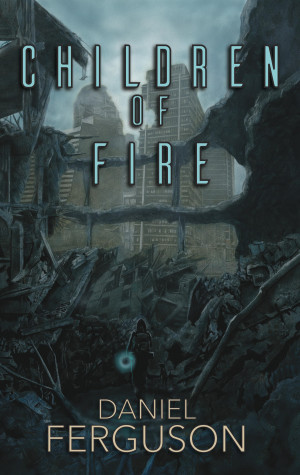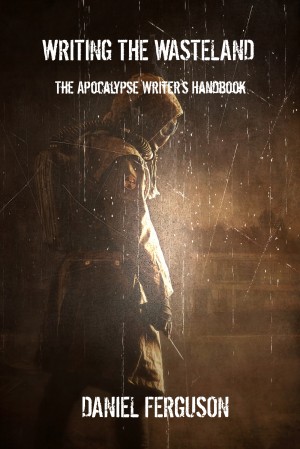Interview with Daniel Ferguson
Published 2015-07-26.
What motivated you to become an indie author?
Traditional publishing tends to be slow going with lots of waiting for rejection. Indie or self publishing is relatively easy to do, these days, and isn't seen as such a bad idea any more with sites like Smashwords and Amazon offering a simple (ish) option. Plus, most genre books published by more traditional publishers don't really allow for experiments in mixed genres - they like to sell what they know already sells. With indie publishing, I'm free to do what I want; with indie publishing I can write post-apocalyptic urban fantasy with superheroes, with traditional publishing, I don't think that'd fly so well.
What is the greatest joy of writing for you?
Once you've got something done and dusted. I have trouble with motivation whilst writing, but once I finish something I can sit back, or I can continue writing, and sometimes, having just finished one project means I have momentum and I can charge ahead onto something else.
What do your fans mean to you?
Positive answer: everything. A slightly more cynical answer: success.
It's their money they're giving up so I can afford to eat. But a writer is nothing without their fans, and writers must always remember they owe their success to their fans first and foremost. Granted, if you're an experienced marketer like E L James, you can do really well while still pissing a lot of people off (somehow), but for the rest of us, writing a good book, having a good publisher or a good marketing strategy, and generally not being a douche pay off in the long run.
A writer's relationship to their fans is a two-way street, basically like a romantic relationship (I have no idea what that's like). A writer without fans is a sad writer, most likely. We want praise, we want million dollar contracts, but at the end of the day, what we need is readers. They're our bread and butter, they're our homies, they're the ones who put our children through college. And if you piss them off they have every right to turn on you and stop buying your books. So, you know, they're my biggest investment.
What are you working on next?
Not sure whether to write book 2 of Elemental (it appeals to me but I think it needs so thinking time) or a steampunk novella with zombies that needs some work but had some positive feedback.
Who are your favorite authors?
Terry Brooks, Patrick Rothfuss, Alastair Reynolds, Chris Wooding, Terry Pratchett, Neil Gaiman, David Wong, Angus Watson, Hugh Howey, Anthony Ryan, Brandon Sanderson.
When you're not writing, how do you spend your time?
Too many video games and movies.
What are your five favorite books, and why?
The Name of the Wind (Patrick Rothfuss): *prepares podium, arranges sheets of paper* Well...
It's just beautifully written and also packed with heart, humour, a bit of action, song, dance, and surprisingly dark stuff later on. The blurb and prologue alone deserve awards.
Tales of the Ketty Jay (Chirs Wooding): this series is plain old fashioned FUN. There's nothing more I need to say about this one.
John Dies At The End (David Wong): despite it's biggest flaw (a middle section where nothing happens) it had me laughing out loud on one page and trembling in fear the next.
Armageddon's Children (Terry Brooks): this is what inspired Children of Fire's genre fusion of apocalypse and fantasy. You don't do that, you just don't, but he did it first and I followed in his footsteps (while making my book my own).
The Book Thief (Markus Zusak): commercial AND critical success? I can see why! This book is just brilliant.
What is your e-reading device of choice?
My phone and various apps. Though I have considered getting a new, better ereader than the one I have (which I haven't touched in years).
When did you first start writing?
Probably about age 7. I had zero grasp of the English language. At 29 I'm barely that much more fluent :p
Describe your desk
I'm not sure what wood it's made of, but it's not mahogany (sad face). It curves to fit the corner of the room, it's pretty decent sized, it's light coloured, it has shelves and a pair of CD racks, it can be split in half horizontally (the shelves can be removed) and it houses a gaming-capable computer and a bunch of textbooks on writing.
Smashwords Interviews are created by the profiled author or publisher.
Books by This Author
Writing The Wasteland: The Apocalypse Writer's Handbook
by Daniel Ferguson
A writer's guide to writing apocalyptic fiction, defining the traditional definitions of apocalypse and dystopia, how the end can come about, destruction imagery, surviving and scavenging, clothing, trading, violence, travel, plot types, rebuilding society, and a handy list of inspiration to get you started.


